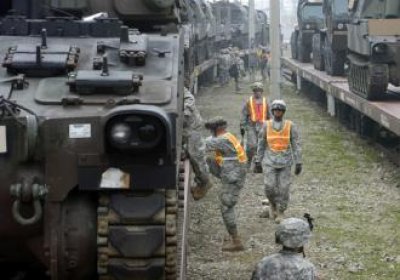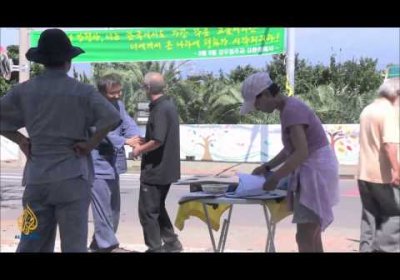Samsung service worker Choi Jong-beom committed suicide on October 31 in protest against poverty wages and harsh working conditions at the company's operations in South Korea.
The 31-year-old was found dead in his car the following morning. He left behind a wife and a 10-month-old daughter.
Choi was a contract worker employed at a Samsung after-sale service centre that provided repair and maintenance services to customers. The service centre was owned and operated by an outsourced contractor.
South Korea
South Korea: Hyundai workers strike
About 46,000 Hyundai workers will launched a four-hour strike over two days in order to press the South Korean car-maker for higher wages and benefits, union officials said on August 20.
Spokesperson Kwon Oh Il said that talks had made little progress, Morning Star reported that day. The union has demanded increased wages and benefits during three months of annual negotiations.
United States: Socialist wins 35% in Seatlle poll
Seattle voters sent a clear message to an out-of-touch political establishment on August 6 that they are fed up with business as usual, and are looking for an alternative to corporate-pandering politicians like Democrat Richard Conlin.
Kshama Sawant, who was recently written off by The Seattle Times as “too hard left for Seattle”, won a stunning 35% of the vote. Sawant is a member Socialist Alternative.
Outsourced truck drivers contracted to perform work for the Australian multinational company Boral have been on an indefinite strike since June 25 in Dangjin in South Korea’s South Chungcheong province.
Boral specialises in the supply of building materials. Its headquarters are in Sydney and it employs more than 15,000 people in Australia, the United States and across Asia.
Before a May 7 visit to US Congress by South Korean President Park Geun-hye, the Workers Solidarity Student Group — the student section of socialist group Workers Solidarity All Together — issued this statement about the threat to war on the Korean peninsula. It was translated by Chris Kim and is abridged from US Socialist Worker.
* * *
Amid the continuing rise of military tensions on the Korean peninsula, South Korea's new president, Park Geun-hye, will make her first visit to the US since her inauguration in late February for a US-South Korean summit.
As tensions rise and threat of war seems to be grow on the Korean Peninsula, most media portrayals can make it seem be entirely the fault of an out-of-control militarist North Korean regime. Missing from the story are the actions of the United States in militarising the region and repeatedly threatening the North.
SNSD/Girls’ Generation, 2NE1, 4Minute, Shinee, BigBang — just a few South Korean band names with global hip cachet to burn.
Their cult-like following has led some forecasters to predict that the centres of cultural power may well be shifting eastward, challenging the traditional dominance of US-based music companies.
Hundreds of armour-clad thugs from a private strikebreaking firm raided the site of a peaceful protest against a management-imposed lockout at the SJM car parts factory in Ansan, South Korea, on July 27.
Thirty four workers were injured and many were taken to hospital for treatment of serious injuries. The private strikebreakers were fitted in full riot gear with helmets, shields, sharp iron parts and meter long clubs. They sprayed fire extinguishers to obscure the workers' vision as they went on a club-weilding rampage.
The South Korean government is building a naval base on Jeju Island, officially named the “Island of World Peace”. The base will be one of the largest in the world.
More than 3000 riot police were sent to the Yoosung piston head factory in Asan on May 24 to break up a factory occupation and sit in protest over a company lockout.
Yoosung is a manufacturing company that has a near monopoly over the production of piston rings with an 80% share of the domestic market. It is a major supplier for Kia and Hyundai motors.
Despite years of anti-labour laws, government attacks on unions, workplace restructuring and labour “flexibility”, the huge turnout for 2011 May Day celebrations shows that South Korean organised labour is still a force to be reckoned with.
On May 1, huge numbers of workers took to the streets for May Day protests across Seoul. Police estimated the crowd at more than 58,000 — making it the largest 2011 May Day rally in Asia.
The main demands of the rally were for better workplace security and an end to the casualisation of labour.
Three former members of the left-wing student group Capitalism Research Society (CRC) were taken into police custody on March 21.
Among those arrested was the group’s former president Choi Ho-hyeon. They were charged under the National Security Act, a draconian anti-communist law that was enacted in 1948 during the height of bloody right-wing suppressions of popular grassroots democratic movements.
The law has been repeatedly used to crack down on political opposition and progressive movements.
- Previous page
- Page 4
- Next page






